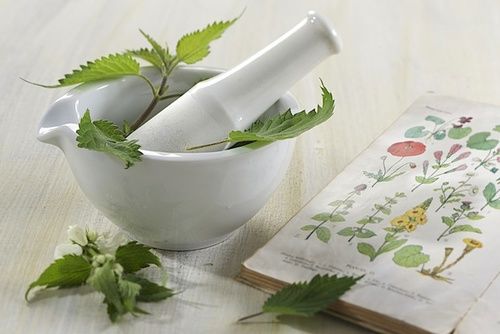Phytotherapy, description and use
Phytotherapy consists in the use of herbs and plants or plant extracts for the treatment of diseases or for the general maintenance of the state of well-being. During their evolution, plants have developed innumerable secondary metabolites aimed at the preservation of the species. From a pharmacological point of view, these same metabolites are equally important in humans.
> The benefits and contraindications of phytotherapy
> For whom it is useful
> The law in Italy and abroad
> Curiosities about phytotherapy

The therapeutic use of plants is therefore found in every human therapeutic system and the history of this human practice is lost in the mists of time. Although many plants or extracts are used by traditional medicine, phytotherapy still does not find a definite and lasting position in the sciences, often in the balance between biomedicine, pharmacology and alternative medicine.
Benefits and contraindications of herbal medicine
The recognized benefits of plants are innumerable . To summarize briefly, phytotherapy allows the use of preparations with hormone-regulating, antimicrobial, antitoxic, laxative, anti-inflammatory and antioxidant activity. If prepared following the appropriate professional process, phytotherapeutic remedies have no contraindications. However, sometimes the promotional exploitation of plants and herbs can lead to poorly documented treatments that can lead to possible risks . In addition to this, we must not forget that many plants interact with drugs, often canceling the effect or even increasing their toxicity .
Also discover how to heal the intestine with herbal medicine
For whom it is useful
Who among us does not remember a grandmother’s remedy or has never drank natural herbal teas to relax? Those who turn to Phytotherapy usually complain of widespread ailments or difficulties , for which, in principle, the opinion of a doctor is not needed. We are talking about ailments such as insomnia , headaches , anxiety , muscle aches, irritability, menstrual pain , water retention and so on. Against these evils of modern society, phytotherapy proves to be effective and widely used. But its scope should not be minimized. Preparing a herbal medicine requires precise work, which can lead to the creation of a drugfor the treatment of much more specific pathologies.
The law in Italy and abroad
The professionalism of the phytotherapist is based on a specialist degree in Pharmacy or in Pharmaceutical Chemistry and Technologies, which is usually followed by a second level master or another specialization course.
At a European level, Herbal Medicine receives general approval , but the differences between the countries of the Union are different and substantial . In Spain, traditional herbs are sold freely, while in the Netherlands or Belgium there is more careful control over food phytotherapeutic products and not pharmacological ones. In Germany, herbal preparations are regarded as a full-fledged drug. And in Italy?
The laws and regulations for phytomedicine in our country are not the most satisfactory. In Italy, most of the phytomedicines on the market are in the form of food supplements according to the DL n.111-92 . At present, several bills presented in Parliament have not yet found the approval of the law.
Curiosities about phytotherapy
Hippocrates, the father of Western medicine, cited the natural remedy as the doctor’s third tool , after touch and speech.






























+ There are no comments
Add yours